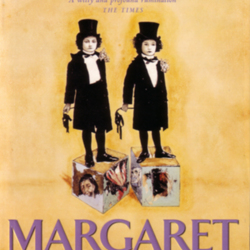

No writer emerges from childhood into a pristine environment, free from other people's biases about writers. If you write, you're a writer, aren't you?" To which the writer responds, "Apparently not." Because there is a "socially acknowledged" role to being a writer, "one that carries some sort of weight or impressive significance - we hear a capital W on Writer." This book is about that kind of darkness, and that kind of desire.She begins her first lecture by referring to Kobo Abé's The Woman in the Dunes, in which the trapped writer tries to reassure himself: "There's no need for you to think of writers as something special. Possibly, then, writing has to do with darkness, and a desire or perhaps a compulsion to enter it, and, with luck, to illuminate it, and to bring something back out to the light. Obstruction, obscurity, emptiness, disorientation, twilight, blackout, often combined with a struggle or path or journey - an inability to see one's way forward, but a feeling that there was a way forward, and that the act of going forward would eventually bring about the conditions for vision - these were the common elements in many descriptions of the process of writing. I think the one closest to my own is "To search for understanding of the reader and myself." Although maybe at my age I'm just stretching my few remaining intellectual muscles, which I don't think is one that she included. Or specifically, " Who are you writing for? Why do you do it? Where does it come from?" And so she compiles a list of all the justifications for writing that she has encountered. What has she been up to, and why, and for whom? And what is this writing, anyway, as a human activity or as a vocation, or as a profession, or as a hack job, or perhaps even as an art, and why do so many people feel compelled to do it? It seems to be true that people - readers and writers - continue to ask such questions. "Let's say it's about the position the writer finds himself in or herself, which is always a little different." The book grew out of a series of lectures, the Empson Lectures at Cambridge University in 2000.

But writers are always writing about writing. _"Writing itself is always bad enough, but writing about writing is surely worse, in the futility department." And yet, isn't literature the most self-conscious of the arts? I mean, painters don't paint paintings about painting, or composers compose music about composing, or dancers dance dances about dancing.


 0 kommentar(er)
0 kommentar(er)
